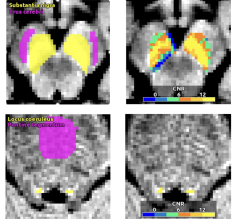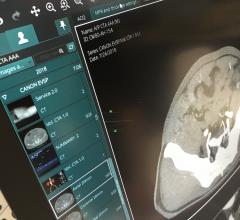March 31, 2010 — A Web-based suite of clinical and reporting tools for cardiology, cardiovascular and vascular imaging has been deployed at Warren Hospital in Phillipsburg, N.J.
The Infinitt Cardiology PACS resides on the same database as the radiology PACS at Warren, enabling clinicians to view radiology and cardiology studies from the same workstation, with a single sign on. The single-database solution consolidates IT infrastructure and eliminates numerous interface and integration issues.
"Clinicians can compare vascular studies with CT angiography or pull up multiple modalities at the cardiology PACS workstation," said Angela Collins, administrative director of Radiology and Cardiovascular Services at Warren. "The technologists can see from the worklist if other types of studies have been done, and then assess a previous exam to locate regions of interest. Advantages like these reduce exam and patient wait times, and boost throughput to help generate additional revenue."
The 214-bed community hospital converted to digital image management in radiology in 2002 with the Smart-PACS product, later upgrading to the G3 PACS in 2007.
"We wanted a comprehensive cardiology solution that would consolidate images from the cath lab, the echo lab and the vascular lab, store them in digital (DICOM) format, and provide all the workflow and reporting tools we needed to go filmless [and mostly paperless]," Collins said.
The system has had a positive impact on the entire hospital, from the medical staff to the technical staff to patient flow, she added.
The cardiology PACS includes more than 30 report templates with fields that are populated automatically from the study data. It saves the technicians significant time and eliminates manual errors.
The added functionality has also resulted in cost reductions, eliminating the cost of video tape, reducing off-site storage costs and saving $30,000 annually by eliminating transcription. With electronic signature, report turnaround time — which had been as long as three to four weeks for vascular studies — has dropped to less than one day.
From an administrative viewpoint, Collins sees the benefits of being able to pool data and analyze it for resource management, staffing and budget decisions. "We now have monthly statistical reports for the cath lab, the echo lab and the vascular lab, tracking exam volume, number of exams per technologist, and other things we used to count manually," said Collins.
"[It] has cut the time it takes for accreditation/re-accreditation drastically," she said. "I'm able to pull together the data I need for ICAVL accreditation more quickly, and I'm now planning to apply for first-time echo lab accreditation through ICAEL."
For more information: www.infinittna.com


 December 20, 2023
December 20, 2023 







